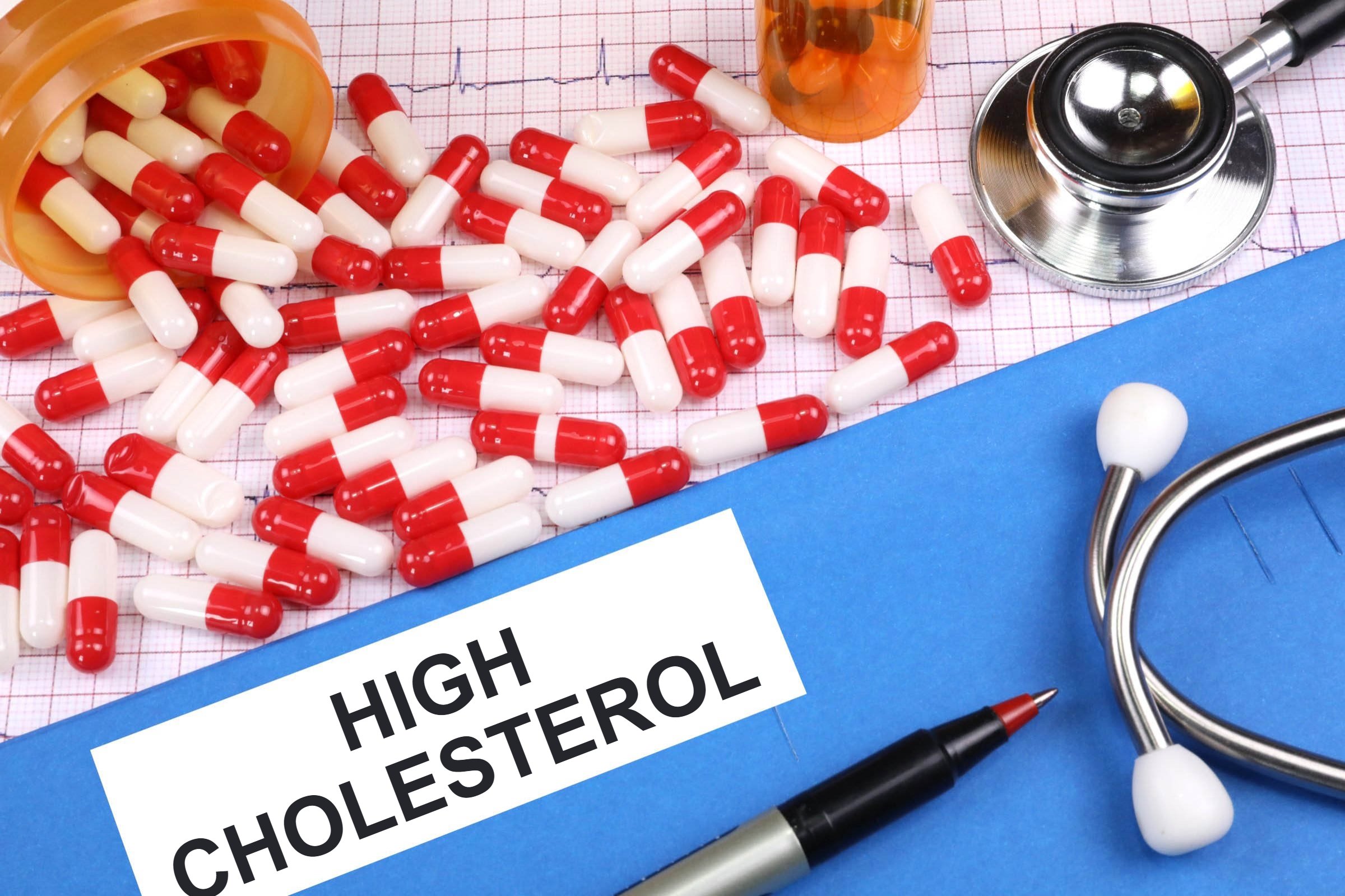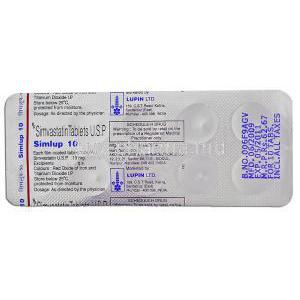Vytorin
- I. Introduction
- II. Uses of Vytorin
- III. How Vytorin Works
- IV. Off-label Uses of Vytorin
- V. Dosage and Administration
- VI. Composition
- VII. Side Effects
- VIII. Common Side Effects
- IX. Interactions with Other Drugs
- X. Warnings and Contraindications
- XI. Careful Administration and Monitoring
- XII. Important Precautions
- XIII. Administration Considerations for Special Populations
- XIV. Overdosage and its Management
- XV. Storage and Handling Precautions
I. Introduction
What is Vytorin? Vytorin is a medication that combines the effects of Ezetimibe and Simvastatin. Its primary purpose is to lower levels of cholesterol in the bloodstream. The development of this medication showcases the innovation in the pharmaceutical industry. History and development of Vytorin: Vytorin was introduced to the field in the early 21st century, representing a significant breakthrough. Combining two agents for reducing cholesterol became a pivotal moment in cardiovascular treatment approaches. Reasons for prescribing Vytorin: Doctors often prescribe Vytorin to patients diagnosed with hyperlipidemia or mixed hyperlipidemia. It is also commonly used for individuals with a family history of cholesterol levels, mainly when lifestyle changes alone are insufficient.

II. Uses of Vytorin
Vytorin is a medication that is known for its effectiveness in managing cholesterol levels. It works by targeting both cholesterol and LDL (low-density lipoprotein) cholesterol, offering a dual-action approach to improve cardiovascular health. One of its benefits is reducing LDL cholesterol, commonly referred to as “bad cholesterol,” which can contribute to the development of arterial plaque. By keeping LDL levels within recommended limits, Vytorin significantly reduces the risk of atherosclerosis 1. For patients with atherosclerosis and other cardiovascular risks, Vytorin offers advantages like slowing down disease progression, improving arterial flexibility, and decreasing the likelihood of cardiovascular events 2.
2: Vytorin: Side effects, uses, dosage, interactions, and more | Medical News Today 1: Vytorin: Uses, Dosage & Side Effects - Drugs.com
III. How Vytorin Works
How Vytorin works: Vytorin has a dual action mechanism. It combines the effects of Simvastatin, which reduces cholesterol production in the liver, and Ezetimibe, which decreases cholesterol absorption from food. The functions of Ezetimibe and Simvastatin: Ezetimibe works by blocking cholesterol absorption in the intestines, decreasing cholesterol levels. Simvastatin, on the other hand, lowers cholesterol production in the liver. When used together, they reduce cholesterol. Effects on liver production and intestinal absorption: Using Ezetimibe and Simvastatin, Vytorin tackles elevated cholesterol levels from both angles. It is inhibiting its production in the liver and reducing its absorption from food simultaneously.
IV. Off-label Uses of Vytorin
While these are the approved uses for Vytorin, there have been instances where Vytorin has been prescribed for conditions other than its main approved uses. This off-label use usually comes from evidence based on experience or smaller studies, which highlight the drug’s versatility and potential for therapeutic applications. However, caution should be exercised by healthcare practitioners when prescribing Vytorin off-label, ensuring that patients receive education and close monitoring to prevent any unexpected complications 2.
2: Off-Label Use of Drugs: What You Need to Know | FDA 1: Vytorin: Uses, Dosage & Side Effects - Drugs.com
V. Dosage and Administration
The recommended dosage range for Vytorin typically varies from 10/10 mg to 10/80 mg (Ezetimibe/Simvastatin). However, it's important to note that individual requirements may differ. Medical professionals must exercise discretion. Vytorin is usually taken daily, preferably in the evening. This timing aligns with the liver's peak cholesterol production, maximizing the medication's effectiveness. It is crucial to adjust dosages based on patient populations; Elderly patients may require lower doses. Individuals with hepatic insufficiencies should be closely monitored. These considerations ensure that Vytorin is tailored appropriately for each patient's needs.
VI. Composition
Vytorin, an effective medication for managing cholesterol, owes its efficacy to combining two active ingredients: Ezetimibe and Simvastatin. These components work together to provide cholesterol management. In addition to the ingredients, Vytorin also contains auxiliary substances such as cellulose, lactose, and magnesium stearate. These ingredients play a role in ensuring stability, prolonging shelf life, and maintaining tablet integrity. Vytorin is available in tablet form with strengths ranging from 10/10 mg to 10/80 mg to accommodate the diverse needs of patients.
VII. Side Effects
Overview of side effects: Although Vytorin is generally well tolerated, some patients may encounter side effects. These can vary from gastrointestinal problems to more uncommon muscular complications. Differentiating between common and rare side effects, side effects usually improve over time. They are not as problematic, whereas more irregular issues such as myopathy require immediate medical attention and possibly discontinuing the medication.
VIII. Common Side Effects
Common problems with the system may include feelings of nausea experiencing diarrhea, or having stomach discomfort. Specific individuals might notice muscle soreness or tenderness, particularly when accompanied by a fever. If liver enzymes are elevated, it could indicate stress or damage to the liver. In some cases, regular blood tests may be necessary.
IX. Interactions with Other Drugs
Drugs known to enhance Vytorin's effects include medications like gemfibrozil or niacin. However, it's important to note that these medications may also increase the risks of side effects. On the other hand, certain antifungals or antibiotics may reduce the potency of Vytorin, so combining them should be carefully considered. When using Vytorin alongside drugs, it is crucial to thoroughly assess potential interactions and avoid any unwarranted side effects.
X. Warnings and Contraindications
Conditions in which Vytorin should not be used: Vytorin should not be taken by patients with liver diseases or unexplained long-lasting increases in hepatic transaminase levels. Risks linked to long-term use: Continued use of Vytorin may result in muscle-related conditions or complications with the liver. This highlights the importance of monitoring. Patient groups at risk: Individuals with a history of liver problems, excessive alcohol consumption, or previous adverse reactions, to medications that lower cholesterol should exercise caution.
XI. Careful Administration and Monitoring
Regular blood tests play a role in safeguarding against potential health issues. They help doctors identify signs of complications, especially related to the liver or muscles, ensuring the well-being of patients. By monitoring levels of liver enzymes and creatine kinase, we can gain insights into the health of these organs. If any abnormalities are detected in these values, it may be necessary to adjust medication dosage or temporarily pause Vytorin treatment. It's important to remember that pharmacotherapy is a process that requires adjustments based on each patient's response to the medication and any possible side effects that may arise.
XII. Important Precautions
Considering your health while taking Vytorin is crucial even though the medication helps combat cholesterol. To achieve the results of this treatment, it's essential to follow a diet low in saturated fats and cholesterol. It's worth noting that consuming alcohol while on Vytorin can stress your liver. It is advisable to consume alcohol in moderation, and patients who tend to alcohol may require monitoring. Some activities and conditions should be avoided while taking Vytorin. These include using medications with potential liver toxicity, exposure to situations that can worsen muscle breakdown, and excessive alcohol consumption. It's best to steer clear of these scenarios when undergoing Vytorin treatment.
XIII. Administration Considerations for Special Populations
a. Administration to the Elderly As people age, their bodies undergo changes that can impact how they metabolize and respond to medications. It may be necessary to adjust dosages and take precautions when prescribing drugs to older adults due to potential issues with drug clearance. Side Effects in Older Adults It's essential to monitor older patients taking medication as they may have an increased sensitivity to drugs. This heightened sensitivity can lead to side effects like muscle problems,, so it's crucial to stay vigilant. b. Administration to Pregnant Women and Nursing Mothers When managing women's health while ensuring their fetus's or newborn's well-being, doctors must navigate a complex situation. Safety Profile and Known Risks Vytorin falls under Category X, meaning it has shown risks for the fetus. For nursing mothers,, caution should also be exercised as there is uncertainty about its presence in breast milk. Recommendations for Use During Pregnancy and Lactation In general,, Vytorin is not recommended for use during pregnancy. While breastfeeding. If a woman becomes pregnant while taking this medication,, discontinuation should occur immediately,, followed by consultation. c. Administration to Children Pharmacotherapy for children always requires an extra level of caution. Pediatric Dosage and Safety While Vytorin has been studied for use,, dosages need to be tailored specifically for each child with careful monitoring of both safety and effectiveness. Considerations for Long-term Use in Young Populations The long-term effects of using Vytorin in children are still not fully understood. Regular assessments and careful clinical decisions are necessary when considering prolonged use in patients.
XIV. Overdosage and its Management
Signs of taking too much Vytorin: If you take more than the recommended dose,, you may experience symptoms such as muscle pain, stomach ache,, or higher levels of liver enzymes. It is crucial to seek medical attention if you suspect an overdose. The primary approach to managing an overdose involves supporting and closely monitoring the patient's condition. With intervention,, the prognosis after an overdose is usually favorable. However,,, monitoring liver and muscle indicators is important to ensure recovery.
XV. Storage and Handling Precautions
It's best to store Vytorin in dry places. Keeping it at room temperature, away from light and moisture, is ideal for storing it. After it expires,, Vytorin may not work effectively anymore. It could even be harmful. When disposing of it,, follow regulations to ensure environmental and human safety. To maintain the integrity of the medication, Always check the expiration date before using it. Store it in its packaging out of reach of children. Avoid storing it near sources of heat or in areas.























